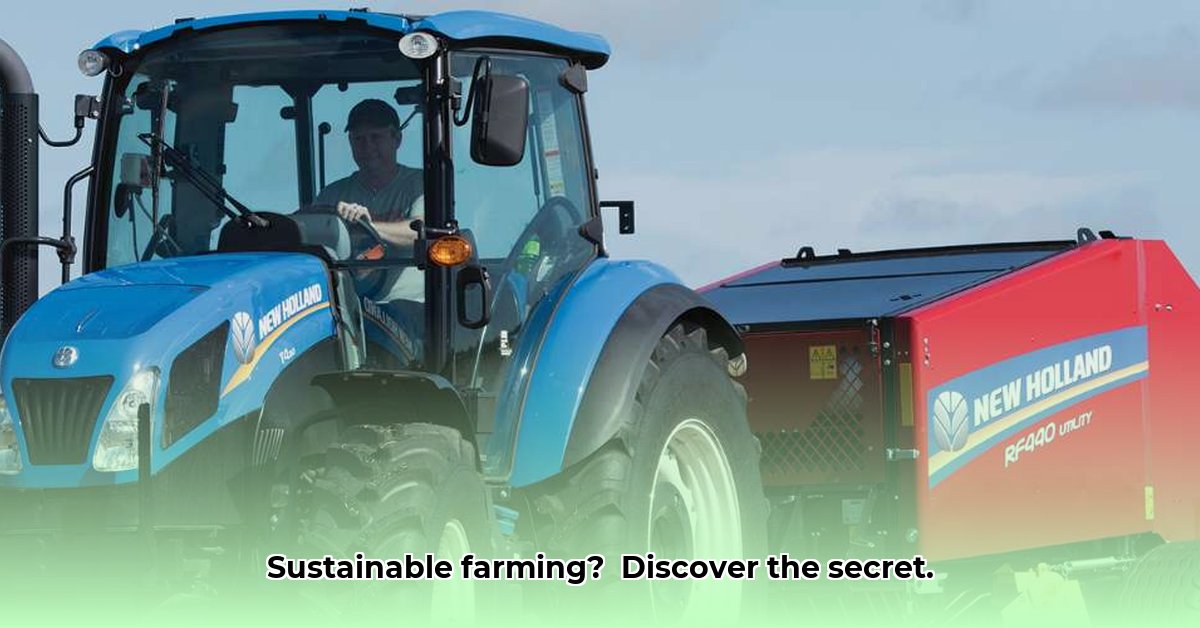
Feeding the world sustainably is agriculture's greatest challenge. Finding the right equipment is a crucial part of the solution. This article examines Capital Tractor in Montgomery, Alabama, and its contribution to eco-friendly farming. We'll explore their equipment offerings, their support for sustainable practices, and why farmers might choose them. We'll uncover how Capital Tractor is striving to make farming more sustainable, impacting the future of food production. For more on agricultural equipment in Alabama, check out this resource.
Capital Tractor's Current Approach to Sustainability
Detailed information regarding Capital Tractor's specific sustainability initiatives is scarce online. Their website primarily focuses on equipment sales and service. However, we can draw inferences. Their partnerships with manufacturers like Kubota and Land Pride, known for durable machinery, indirectly contribute to sustainability. Longer-lasting equipment reduces the frequency of replacements, minimizing manufacturing waste and lowering the overall environmental footprint. This is a significant, albeit less publicized, aspect of their contribution.
However, a more comprehensive assessment requires detailed data on fuel efficiency, manufacturing processes, and end-of-life equipment management. Without this information, it's difficult to fully evaluate their environmental impact. The current picture is incomplete, like a puzzle missing key pieces.
The Need for Transparency and Concrete Steps
The lack of readily available data on Capital Tractor’s sustainability practices presents a significant challenge. Farmers need clear information to make informed decisions aligning with their sustainability goals. This necessitates a collective effort.
Actionable Steps:
Short-Term (Within One Year):
- Capital Tractor: Create a dedicated webpage detailing sustainability initiatives, highlighting fuel-efficient models and equipment longevity. This simple act fosters transparency and builds trust.
- Equipment Manufacturers: Collaborate on marketing campaigns emphasizing eco-friendly technologies and features. Joint promotion amplifies the message and strengthens impact.
- Farmers: Utilize existing resources and training to optimize equipment efficiency and minimize environmental impact. Workshops on best practices empower farmers to participate actively in sustainable agriculture.
Long-Term (Three to Five Years):
- Capital Tractor: Implement a comprehensive Environmental, Social, and Governance (ESG) reporting framework. This ensures accountability and strengthens stakeholder relationships.
- Equipment Manufacturers: Invest in joint research and development of more environmentally conscious agricultural equipment. This requires sustained commitment and funding.
- Farmers: Leverage data-driven insights (e.g., precision agriculture techniques) to optimize crop yields while minimizing resource consumption. This is crucial for long-term sustainability.
Expanding the Possibilities: Areas for Further Innovation
Capital Tractor possesses significant potential to enhance its sustainability profile. Consider these opportunities:
- Case Studies: Showcase farmers successfully using their equipment for water conservation or emission reduction. Real-world examples are impactful and compelling.
- Detailed Specifications: Provide comprehensive product information highlighting fuel efficiency and reduced emissions. This directly addresses farmer needs and concerns.
- Partnerships: Collaborate with sustainable agriculture organizations to offer educational programs and workshops. This strengthens community ties and promotes best practices.
Isn't transparent communication in this sector essential for informed decision-making?
Conclusion: Building a Sustainable Agricultural Future
Sustainable farming practices are vital for the future of agriculture. Capital Tractor has a key role to play. By prioritizing transparency, fostering innovation, and engaging with the farming community, they can solidify their commitment to environmentally responsible agriculture. The benefits extend beyond their company to the wider agricultural ecosystem and the planet. The choice to act decisively is theirs, and the stakes are high. The time for action is now.